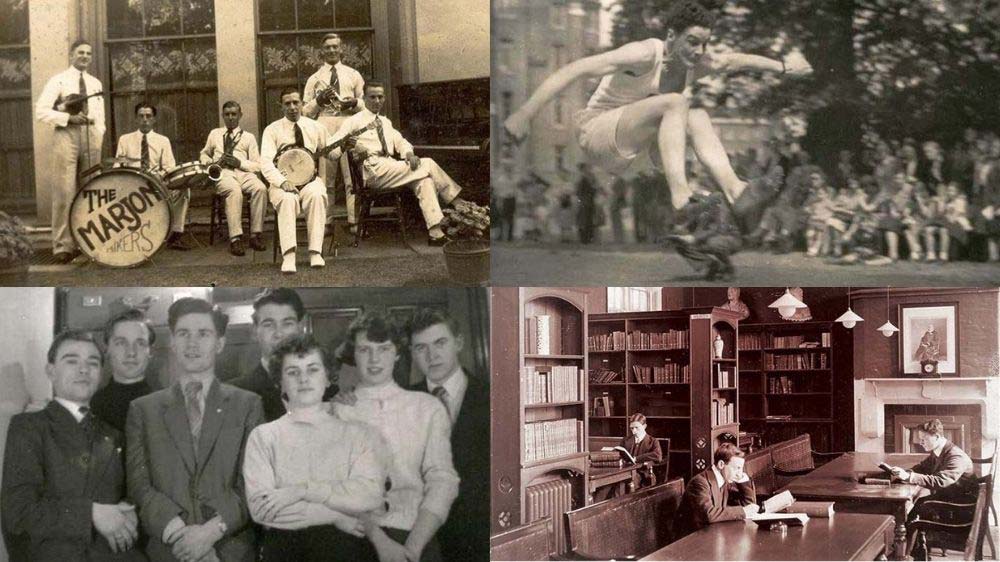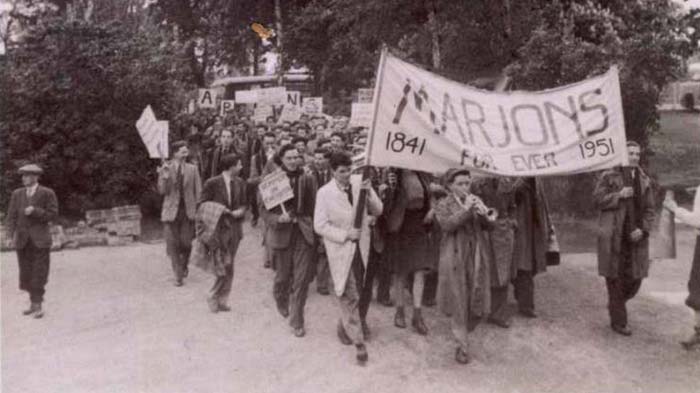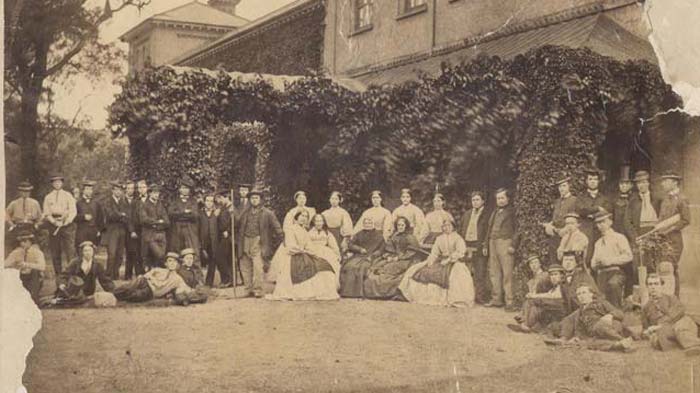The history of Marjon
In 1840 our first students took their seats in St John’s College, Battersea. In 1841, the first students arrived at St Mark's College, Chelsea. The two colleges amalgamated in 1923, after the War, becoming 'Marjon'.


180 years of thinking differently
Marjon exists because our founders saw a problem of poverty in Victorian London, and they acted. They set up colleges specifically to educate young orphans from the workhouses, and bring them out of poverty. They recognised that teaching was a profession, which needed rigour, technique and sophistication, and with their actions they committed to improving education for all.
For 180 years, Marjon staff and students have acted on the courage of their convictions, making a difference to lives across the world. We look forward to a vibrant future of enhancing even more lives by thinking and acting differently.

Opportunity for all
Innovative plans for the first bespoke teacher training college, St John's in Battersea, were first set in motion in the 1830s. Our first students – including orphans from a local workhouse – started their training in February 1840. The founding principals of each college, James Kay-Shuttleworth of St John’s in Battersea and Rev. Derwent Coleridge of St Mark’s in Chelsea have been credited for developing the first national school system, and the colleges that were needed to train the teachers.
Both were driven by their strong principles of social justice and first-hand experiences of poverty and inequality, to establish a means for everyone to access high quality education regardless of background or means. They saw education as key to providing a pathway out of poverty and towards opportunity and achievement for all.

Our founders
Kay-Shuttleworth, as the first Secretary of the Committee of Council on Education established 'Her Majesty’s Inspectors of Schools'- an early form of OFSTED – a body designed to provide a support network for newly qualified teachers and to share practice. Impatient with the delays in pushing the scheme of national education forward, he funded St John’s College himself for its first two years. He travelled extensively in the UK and overseas, visiting existing educational establishments on fact-finding expeditions. His pioneering scientific approach to research was pivotal to the foundation of the Statistical Society and his spearheading attitude to education was written about by Marx and Engels.
Coleridge also championed the role of the arts and culture in the creation of a balanced, spiritual and meaningful ‘education for life’. Between them they created the foundations of the universal free education system.

Becoming 91��Ƶ
Marjon moved to 91��Ƶ in 1973. Affiliated to the University of Exeter in 1991, we were awarded university college status in 2007 and finally received legal confirmation of university title in 2013. We are now known as 91��Ƶ, a trading name of The University of St Mark & St John.
The inspirational influence of our founders lives on today in the passion and commitment of our staff to help students succeed. From day one, the attitude has been to constantly look for newer and better ways of doing things. We are a values-led institution which always puts students first. We are incredibly proud of our alumni who go on achieve and become fantastic role models for those who come after them.Every one of our students has their own success story. Some have overcome incredible odds to get to University. Many are first in the family to study at university. Others come later in life and never thought they would have such an opportunity to prove what they are capable of.
For all our students, studying with Marjon is a life-changing experience. Our proudest moments are in being there to share these intensely personal achievements with our students, who will always remain our greatest inspiration.
